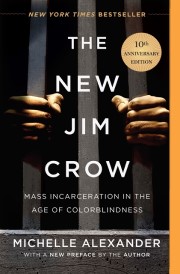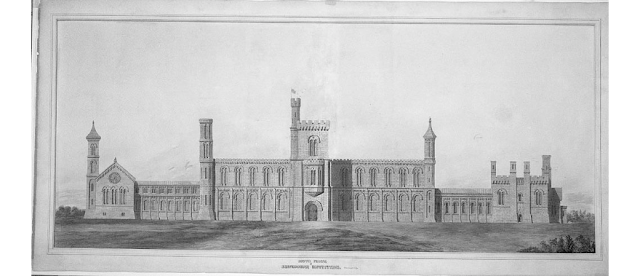DIANE'S CORNER ... Celebrate Lazy Day

Here’s a special day you can celebrate without getting up from the sofa. Lazy Day is an ideal excuse to take a break and enjoy some precious “me” time, without feeling guilty about it.
Now’s your chance to stop tearing around doing chores and organising events. Sit down and relax, or go back to bed for a nap. You could even mark the occasion by pampering yourself with a massage treatment or visit to a spa – if getting there doesn’t seem too much like hard work, that is.
Learn about Lazy Day
Did you know that being lazy from time-to-time can actually be good for you? After all, for one, lazy people are more likely to be well-rested. There are many benefits that are associated with getting sufficient amounts of sleep. This includes decreased inflammation, decreased stress, having a greater attention span, and improved memory. There are also a number of nasty health fallouts that can occur if you do not get enough sleep. This includes anxiety, depression, a weakened immune system, and heart disease.
Aside from this, if you have a tendency to be a bit of a lazy person, you are going to be less likely to experience burnout. Taking a break and allowing yourself to be lazy from time-to-time is going to stop you from running your body out of focus and energy. The impact of burnout can be very serious. If you are too stressed it can result in loss of appetite, insomnia, and chronic fatigue.
The benefits do not end there either. Lazy people are said to waste less time. This is because they make sure that every work task or recreational activity is worth their energy and time. You also do not waste any resources on tasks that are not going to have value in the end. This means that you are more likely to do your research so that you can plan your schedule effectively and choose how to spend your time properly.
Lazy people also have enhanced efficiency levels. This is because their ultimate goal is to ensure they finish a task as fast as possible so that the can rest at the end of it. This means that efficiency is going to be maximized. Also, the last thing a naturally lazy person wants is for them to have to re-do a task because it has not been carried out correctly, and so you may be more likely to ensure that you don’t rush through and make mistakes. Lazy people definitely embody the work hard, play hard mantra.
It is also believed that lazy people have a greater focus on their long-term goals. When we let our minds wander, we start to think about our goals over the long-term and our future. Therefore, if you give your mind a much-needed break it can result in goal-planning and goal-setting. This means you are going to be less caught up in what is happening right now, giving you more time and freedom to think about what is coming in the future.
As you can see, being lazy is not as negative as everyone likes to make out! There are actually a number of benefits associated with having the lazy gene!
History of Lazy Day
The founders of Lazy Day aren’t known, possibly because they were too busy chilling out to keep a record of their efforts! However, their idea has caught on, with many people enjoying the chance to get away from everyday stress. So lie back on the couch, give your TV remote control some exercise, and enjoy a well-earned rest.
thanks for the pics, Bev
Joke of the Day
Liar, Liar

You said everything would be back to normal after June!
Ju-Lyed!
Ju-Lyed!
 no fines.... just a deterrent
no fines.... just a deterrent
Word of the Day
Jim Crow or jim crow

The New Jim Crow: Mass Incarceration in the Age of Colorblindness by Michelle Alexander
MEANING:
noun: The systematic practice of discriminating against Black people.
ETYMOLOGY:
From Jim Crow, the name of a Black character in a 19th-century minstrel show. Earliest documented use: 1832.
USAGE:
“As droves of Black Americans fled the violence of Jim Crow, Canada’s government and residents organized to refuse you entry and even deport those fortunate enough to clear the bureaucratic obstacles.”
Andray Domise; Canada’s Own Legacy of Oppression; Maclean’s (Toronto, Canada); Jul 2020.
Andray Domise; Canada’s Own Legacy of Oppression; Maclean’s (Toronto, Canada); Jul 2020.
Idiom of the Day

 wish more would safe distance
wish more would safe distance
wish more would safe distance
This Day in History

1821 - Missouri became the 24th state to join the Union.
 1846 - The Smithsonian Institution was chartered by the U.S. Congress. The "Nation's Attic" was made possible by $500,000 given by scientist Joseph Smithson.
1846 - The Smithsonian Institution was chartered by the U.S. Congress. The "Nation's Attic" was made possible by $500,000 given by scientist Joseph Smithson.
 1869 - The motion picture projector was patented by O.B. Brown.
1869 - The motion picture projector was patented by O.B. Brown.
 1927 - Mount Rushmore was formally dedicated. The individual faces of the presidents were dedicated later.
1927 - Mount Rushmore was formally dedicated. The individual faces of the presidents were dedicated later.
 1947 - William Odom completed an around-the-world flight. He set the solo record by completing the flight in 73 hours and 5 minutes.
1947 - William Odom completed an around-the-world flight. He set the solo record by completing the flight in 73 hours and 5 minutes.
 1948 - On ABC, "Candid Camera" made its TV debut. The original title was "Candid Microphone."
1948 - On ABC, "Candid Camera" made its TV debut. The original title was "Candid Microphone."

1954 - Construction began on the St. Lawrence Seaway.
 1985 - Madonna's "Like A Virgin" became the first album by a female to be certified for 5 million sales.
1985 - Madonna's "Like A Virgin" became the first album by a female to be certified for 5 million sales.

2003 - Ekaterina Dmitriev and Russian cosmonaut Yuri Malenchenko were married. Malenchenko was about 240 miles above the earth in the international space station. It was the first-ever marriage from space.
thanks, Julia

DAILY SQU-EEK

If You Were Born Today, August 10
Your personality is colorful, inventive, and intriguing. You often seem to choose the more difficult path in life, as perhaps you find it more satisfying. Although it might not be obvious to acquaintances, you tend to be a worrier, mostly about security and finances. You crave variety and are at your best when you have freedom of movement, some level of independence, and the ability to get away now and again. However, you are also dependable with those you love most. Routine is to be avoided – there seems to be greater luck in your life with changes, and when your creativity is allowed to blossom. You are vital and competitive, and able to put your emotions aside when need be. You are also proud and have an occasional domineering streak. You tend to fare better in love later in life. Famous people born today:
 1814 Henri Nestlé, German-Swiss industrialist (founder of Nestlé), born in Frankfurt, Germany (d. 1890)
1814 Henri Nestlé, German-Swiss industrialist (founder of Nestlé), born in Frankfurt, Germany (d. 1890)
 1874 Herbert Hoover, 31st US President (R: 1929-1933), born in West Branch, Iowa (d. 1964)
1874 Herbert Hoover, 31st US President (R: 1929-1933), born in West Branch, Iowa (d. 1964)
 1898 Jack Haley [John Joseph], American actor (The Wizard of Oz, Ford Star Revue), born in Boston, Massachusetts (d. 1979)
1898 Jack Haley [John Joseph], American actor (The Wizard of Oz, Ford Star Revue), born in Boston, Massachusetts (d. 1979)
 1902 Norma Shearer, Canadian-American actress (Escape, The Divorcee), born in Montreal, Quebec (d. 1983)
1902 Norma Shearer, Canadian-American actress (Escape, The Divorcee), born in Montreal, Quebec (d. 1983)
 1959 Rosanna Arquette, actress (Desperately Seeking Susan, After Hours), born in NYC, New York
1959 Rosanna Arquette, actress (Desperately Seeking Susan, After Hours), born in NYC, New York

1960 Antonio Banderas, Spanish actor (Philadelphia, Evita, Zorro), born in Malaga, Spain

1997 Kylie Jenner, American model, TV and social media personality (Keeping Up with the Kardashians), born in Los Angeles, California
thanks, Marge

READERS INFO
1.
(Not So) Totally Useless Facts of The Day:
 On March 30, 1867, the United States agreed to a deal with Russia. The Treaty of Russia was signed and made official. As part of this treaty, the US agreed to purchase the area known as Alaska for the price of $7.2 million.
On March 30, 1867, the United States agreed to a deal with Russia. The Treaty of Russia was signed and made official. As part of this treaty, the US agreed to purchase the area known as Alaska for the price of $7.2 million.
 Once upon a time, about 80 million years ago or so, there was the continent of Zealandia. Located between the islands of New Zealand and New Caledonia (and neighboring Australia), this lost continent is now two-thirds of a mile under the sea. Scientists made a voyage the sunken city in 2017. They believe this lost continent could have served as a pathway for animals to travel from one continent to another.
Once upon a time, about 80 million years ago or so, there was the continent of Zealandia. Located between the islands of New Zealand and New Caledonia (and neighboring Australia), this lost continent is now two-thirds of a mile under the sea. Scientists made a voyage the sunken city in 2017. They believe this lost continent could have served as a pathway for animals to travel from one continent to another.
 Ruth Wakefield! That is the name of the woman we owe thanks to for coming up with the chocolate chip cookie. Wakefield was a chef and who made the discovery in 1938. It is 82 years later and the world is still thankful for what Ms. Wakefield did.
Ruth Wakefield! That is the name of the woman we owe thanks to for coming up with the chocolate chip cookie. Wakefield was a chef and who made the discovery in 1938. It is 82 years later and the world is still thankful for what Ms. Wakefield did.
2.
1846 -
 The Smithsonian Institution was created when President James K. Polk signed the Smithsonian Institution Act into law. The institution, which is sometimes known as "America's Attic" due to its varied exhibits and explorations into humankind's greatest achievements, was made possible by a generous grant bequeathed by English scientist James Smithson. In his will, Smithson had asked that the fortune he left behind be used for "the increase and diffusion of knowledge among men." James Smithson was not a household name in his time, but he was a distinguished figure in the scientific community, a member of the venerable Royal Society of London from the young age of 22, and an expert in the fields of geology and chemistry. One of his more notable discoveries even earned him the honor of having a carbonate mineral named after him -- smithsonite. Smithson died in Italy in 1829, leaving behind a peculiar bequest that, should his only nephew die without any heirs, that the entirety of his estate should be turned over to the United States in order to found the Smithsonian Institution in his memory. In the course of less than a decade, Smithson's nephew also died childless. Thus, on July 1, 1836, the U.S. Congress authorized acceptance of the Smithson gift. Transfer of funds consisted of a total of 104,960 gold sovereigns, 8 shillings and 7 pence as well as Smithson's mineral collection library, scientific notes and personal effects. The fortune was worth well over $500,000 at the time (approximately $11,110,000 in today's money), and was designated to aid in the foundation of a museum and a library, as well as research programs, publications and an ongoing collection of scientific, artistic and historic artifacts. Since its inception, the Smithsonian has housed over 136 million artifacts, ranging from the profound to the obscure, and currently comprises 19 museums and galleries, several research facilities across the globe and the national zoo.
The Smithsonian Institution was created when President James K. Polk signed the Smithsonian Institution Act into law. The institution, which is sometimes known as "America's Attic" due to its varied exhibits and explorations into humankind's greatest achievements, was made possible by a generous grant bequeathed by English scientist James Smithson. In his will, Smithson had asked that the fortune he left behind be used for "the increase and diffusion of knowledge among men." James Smithson was not a household name in his time, but he was a distinguished figure in the scientific community, a member of the venerable Royal Society of London from the young age of 22, and an expert in the fields of geology and chemistry. One of his more notable discoveries even earned him the honor of having a carbonate mineral named after him -- smithsonite. Smithson died in Italy in 1829, leaving behind a peculiar bequest that, should his only nephew die without any heirs, that the entirety of his estate should be turned over to the United States in order to found the Smithsonian Institution in his memory. In the course of less than a decade, Smithson's nephew also died childless. Thus, on July 1, 1836, the U.S. Congress authorized acceptance of the Smithson gift. Transfer of funds consisted of a total of 104,960 gold sovereigns, 8 shillings and 7 pence as well as Smithson's mineral collection library, scientific notes and personal effects. The fortune was worth well over $500,000 at the time (approximately $11,110,000 in today's money), and was designated to aid in the foundation of a museum and a library, as well as research programs, publications and an ongoing collection of scientific, artistic and historic artifacts. Since its inception, the Smithsonian has housed over 136 million artifacts, ranging from the profound to the obscure, and currently comprises 19 museums and galleries, several research facilities across the globe and the national zoo.
3.
Coronavirus Style by Sylvia, CAN DO Correspondent
Not easy to get into heaven


1821 - Missouri became the 24th state to join the Union.
1954 - Construction began on the St. Lawrence Seaway.
2003 - Ekaterina Dmitriev and Russian cosmonaut Yuri Malenchenko were married. Malenchenko was about 240 miles above the earth in the international space station. It was the first-ever marriage from space.
thanks, Julia

DAILY SQU-EEK







1960 Antonio Banderas, Spanish actor (Philadelphia, Evita, Zorro), born in Malaga, Spain

1997 Kylie Jenner, American model, TV and social media personality (Keeping Up with the Kardashians), born in Los Angeles, California
thanks, Marge


The Smithsonian Institution was created when President James K. Polk signed the Smithsonian Institution Act into law. The institution, which is sometimes known as "America's Attic" due to its varied exhibits and explorations into humankind's greatest achievements, was made possible by a generous grant bequeathed by English scientist James Smithson. In his will, Smithson had asked that the fortune he left behind be used for "the increase and diffusion of knowledge among men." James Smithson was not a household name in his time, but he was a distinguished figure in the scientific community, a member of the venerable Royal Society of London from the young age of 22, and an expert in the fields of geology and chemistry. One of his more notable discoveries even earned him the honor of having a carbonate mineral named after him -- smithsonite. Smithson died in Italy in 1829, leaving behind a peculiar bequest that, should his only nephew die without any heirs, that the entirety of his estate should be turned over to the United States in order to found the Smithsonian Institution in his memory. In the course of less than a decade, Smithson's nephew also died childless. Thus, on July 1, 1836, the U.S. Congress authorized acceptance of the Smithson gift. Transfer of funds consisted of a total of 104,960 gold sovereigns, 8 shillings and 7 pence as well as Smithson's mineral collection library, scientific notes and personal effects. The fortune was worth well over $500,000 at the time (approximately $11,110,000 in today's money), and was designated to aid in the foundation of a museum and a library, as well as research programs, publications and an ongoing collection of scientific, artistic and historic artifacts. Since its inception, the Smithsonian has housed over 136 million artifacts, ranging from the profound to the obscure, and currently comprises 19 museums and galleries, several research facilities across the globe and the national zoo.
wise words to live by
Pictures of the day
Pictures of the day

The Battle of Scheveningen was the final naval battle of the First Anglo-Dutch War, taking place on 31 July 1653 (10 August in the Gregorian calendar). This oil-on-canvas painting of the battle, by Dutch marine artist Jan Abrahamsz Beerstraaten, shows a Dutch ship sinking in the right foreground and an English vessel on the left. In the centre, the Dutch flagship Brederode is engaged in furious action with English ships on either side, including Resolution. By late afternoon, twelve of the Dutch ships had either been sunk or captured and the Dutch retired; however, the English fleet was also badly damaged, and returned to port to refit. Both sides claimed a victory; the English because of their tactical superiority, the Dutch because their strategic goal had been achieved by the lifting of the English blockade of their coast. This painting is in the collection of the Rijksmuseum in Amsterdam.
China

A farmer at a plowed field in Liaocheng, Shandong Province.
can't wait to see what happens come September
knit
thanks, Doris

knit
thanks, Nancy
knit
knit

thanks, Valerie, Canadian Correspondent


crochet

thanks, Debbie
live and learn
thanks, Shelley, New York Food Correspondent


CROCKPOT RECIPE



 creative artistry ... take a second look!
creative artistry ... take a second look!
SWEETS

ADULT COLORING




CRAFTS

CHILDREN'S CORNER


PUZZLE

WORD SEARCH


SUDOKU ... hard

solution:


QUOTE



 women DO have power when they get together
women DO have power when they get together

who chose this word? Kids ''might'' like it....
CROCKPOT RECIPE
VEGAN/ VEGETARIAN RECIPE
Both vegetarian and vegan diets may provide health benefits, including reduced body weight, lower cholesterol levels, and decreased risk of cardiovascular disease. However, it is important for vegetarians and vegans to ensure that they are meeting all of their nutritional requirements.
thanks, Alice

COPYCAT RECIPE
thanks, Jenny
SWEETS
thanks, Helen
the new world
ADULT COLORING

Is this you?
FUN
I am a box that holds keys without locks, yet my keys can unlock your deepest senses. What am I?
Answer: -> -> ->

A piano
CRAFTS
some bunny loves you
CHILDREN'S CORNER
thanks, Valerie, Canadian Correspondent

sing your happy song too
PUZZLE
yes, they DO think in the now, don't they?
WORD SEARCH
| answer apron area arena brawn cedar | discus drench drone egest field fresh matter morose | nudity pane peal pear piquant placate plain planet poise preserve | relish rental rugged ruler scalar spare steep steppe store | taste transgress truth unpalatable warning |
so much history should be shared
SUDOKU ... hard
solution:
oh, won't this be fun come winter????
QUOTE
thanks, Amy


a sign that is fun

CLEVER

Question: This sampler was done in 1827 by 10-year-old Rachel Wilson (born Feb. 28, 1817; died April 14, 1865) in Chester County, Pa. It measures 10 inches by 17 inches and has been hand-sewn onto the backing of the frame. This sampler has been handed down in my family; my grandparents gave it to me a few years ago. What is its value?
Answer: American schoolgirls of the 18th and 19th centuries learned to do needlework by stitching letters, numerals and decorative motifs onto fabric, which they often signed and dated. This is classified as a marking sampler, a simple work that is limited to the alphabet, numerals and small motifs. Although this sampler lacks the visual appeal of strong graphics such as a large house, birds or flowers, it has a solid pedigree, hailing from Chester County, Pa., where many samplers were produced by girls at the prominent Westtown School. Samplers of this age, design and condition sell at auctions for $450 to $750. Expect to encounter prices of $1,200 to $2,500 at antiques shops and shows.
Question: What can you tell me about the age and value of this baby scale? When did scales such as this start being made for parents to use?
Answer: The Jacobs brothers, who were three immigrants that worked in the butcher-supply trade in New York City, founded the Detecto Scale Company in 1900. The company produced bakers' dough scales, butcher scales, doctor scales, hanging scales and portion scales. Early baby scales were introduced around the turn of the 20th century. They sometimes had a wicker basket to hold the baby. This Detecto beam-type baby scale, which weighs a child up to 30 pounds, dates to the 1920s. It has a heavy cast-iron base for stability. They sell for $30 to $50.
Question: The coloring on this 4-inch-high vase transitions from green at the bottom to white at the top, with gold around the rim and a white interior. What is the age of this piece, and how much is it worth?
Answer: In the days before indoor plumbing, water had to be carried into the home. Basic items for personal use were a pitcher and basin. Pottery companies expanded what were called chamber toilet sets to include a covered chamber pot, a covered slop jar, a smaller pitcher for hot water, a covered soap dish, a toothbrush vase and a mug. Sears, Roebuck & Company catalogs from the early 1900s carried several English- and American-made semi-porcelain toilet sets for $8.25 or less. You have what appears to be the toothbrush vase from such a toilet set. Although not marked with a manufacturer's name or country of origin, the vase is likely American-made from the early 20th century. Expect to pay $10 to $25 for a similar stray piece.


A THOUGHT FOR TODAY:

do you see what I see?
EYE OPENER ... Vintage
A Schoolgirl's Sampler
 |
Answer: American schoolgirls of the 18th and 19th centuries learned to do needlework by stitching letters, numerals and decorative motifs onto fabric, which they often signed and dated. This is classified as a marking sampler, a simple work that is limited to the alphabet, numerals and small motifs. Although this sampler lacks the visual appeal of strong graphics such as a large house, birds or flowers, it has a solid pedigree, hailing from Chester County, Pa., where many samplers were produced by girls at the prominent Westtown School. Samplers of this age, design and condition sell at auctions for $450 to $750. Expect to encounter prices of $1,200 to $2,500 at antiques shops and shows.
A Weighty Topic
 |
Answer: The Jacobs brothers, who were three immigrants that worked in the butcher-supply trade in New York City, founded the Detecto Scale Company in 1900. The company produced bakers' dough scales, butcher scales, doctor scales, hanging scales and portion scales. Early baby scales were introduced around the turn of the 20th century. They sometimes had a wicker basket to hold the baby. This Detecto beam-type baby scale, which weighs a child up to 30 pounds, dates to the 1920s. It has a heavy cast-iron base for stability. They sell for $30 to $50.
Not Fit for Flowers
 |
Answer: In the days before indoor plumbing, water had to be carried into the home. Basic items for personal use were a pitcher and basin. Pottery companies expanded what were called chamber toilet sets to include a covered chamber pot, a covered slop jar, a smaller pitcher for hot water, a covered soap dish, a toothbrush vase and a mug. Sears, Roebuck & Company catalogs from the early 1900s carried several English- and American-made semi-porcelain toilet sets for $8.25 or less. You have what appears to be the toothbrush vase from such a toilet set. Although not marked with a manufacturer's name or country of origin, the vase is likely American-made from the early 20th century. Expect to pay $10 to $25 for a similar stray piece.
relax and enjoy your time on earth
The President is not only the leader of a party, he is the President of the whole people. He must interpret the conscience of America. He must guide his conduct by the idealism of our people. -Herbert Hoover, 31st US President (10 Aug 1874-1964)

OPTICAL ILLUSION
www.DianesDailyCorner.Blogspot.com







No comments:
Post a Comment